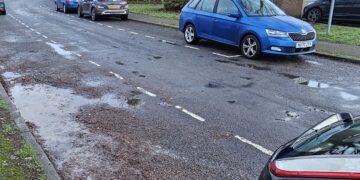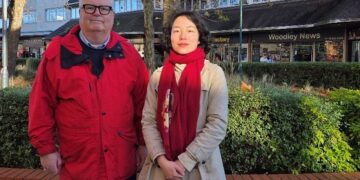
By Adrian Betteridge
The news agenda is set to return to the soaring cost of living.
Oil and gas prices are at an all-time high and inflation for consumers is hovering around 10%. The government is about to cap a typical domestic energy bill at around £2,500, at a reported cost to future taxpayers of around £150Bn.
The cost of travel is also a concern.
Public transport in our area is limited and can be expensive, particularly if travelling as a group.
Motoring costs are rising, and national newspapers have been reporting on people leaving their cars on the driveway in favour of walking or cycling to work, to the shops and for the school run.
Of course, not everyone has the option of travelling by car. Data for Wokingham shows us that around one in 10 households have no access to a car and, in around one in five households, two or more adults share access to a single car.
Some of us are unable to drive for medical reasons, or have no prospect of parking where we work, or have accepted that the harm to our environment and air quality from cars simply isn’t worth it.
For others, cost is often the reason.
Including leasing costs or depreciation, owning a car is estimated to cost around £3,500 per year, a whole 40% more than the energy price cap, and there’s no prospect of the government stepping in to help.
According to the RAC, until 2021, the cost of motoring had risen by only half of the increase in wages over the past 10 years. However, this year’s spike in fuel costs has closed the gap, and the average increase over 10 years now matches the increase in salaries.
Of course, for travelling locally, the cost-effective, simple and sustainable option is to walk or cycle when we can. As well as helping our personal budget, we can collectively reduce the taxpayer-funded costs of our car-dominated transport system, which economists calculate significantly exceeds the revenue from motoring-related taxation.
Change is rarely easy.
But has never been more necessary.

For more, search Facebook for ‘WATCH Wokingham’


















































